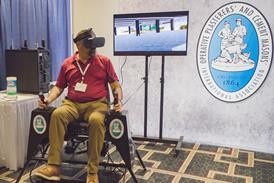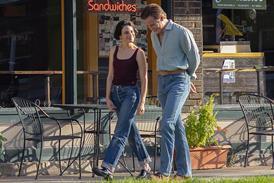50 years after winning a BAFTA for Best Newcomer for his performance as the borstal kid in The Loneliness Of The Long Distance Runner (1962), Tom Courtenay is enjoying an Indian summer in his film career.
Indirectly, he is responsible for Dustin Hoffman’s directorial debut Quartet, in which he stars (it was Courtenay who initiated the project, suggesting to his long-time friend the writer Ronald Harwood that he adapt his play for the screen.)
In Quartet, the British actor plays a dashing British tenor in a retirement home for retired opera singers whose daily routine is shaken up by the arrival of his ex-wife - Maggie Smith in typically imperious mode as the soprano.
Hoffman wanted him to look like a matinee idol. “I had more make-up than Julie Christie in Dr Zhivago,” jokes Courtenay.
No, Dustin Hoffman wasn’t difficult to work with. “I suppose if he’s working with people he likes and thinks they know what they are doing, you don’t get all of that.”
Courtenay has two new movies waiting to come out. Immediately after Quartet, he will be on screen again as the master art forger who takes Colin Firth in hand in Michael Hoffman’s remake of Gambit (scripted by the Coen brothers).
Dinard Festival director Hussam Hindi, who staged a tribute to him at this year’s festival, calls Courtenay one of the “sacred monsters” of British cinema.
The British actor was in robust form on his trip to Dinard, bursting into song at the end of a Q&A and regaling the audience with anecdotes about such celebrated films as Dr Zhivago and Billy Liar.
Courtenay was keen to point out that he hadn’t yet been fully paid for his work on The Loneliness Of The Long Distance Runner. The producers ended up using footage from his film test running in the woods in the final cut of the movie - because that was cheaper for them.
“If you look at the film carefully, I get up and go on my run. I’ve got my socks on but at a certain point in the woods my socks disappear.”
No, he wasn’t much good at running himself — although one US magazine claimed he based his running style on that of the great Czech runner Emil Zapotek. That was true - up to a point. He realised that the best long distance runners often seemed as if they “were about to die” at the end of races. That was a look he found easy enough to emulate.
“One chap made a very interesting observation, quite simple but very accurate and very obvious (it never occurred to me). Borstal, then, was entirely Anglo-Saxon,” Courtenay reflects on the transformation in British society since the beginnings of his film career half a century ago.
As for his six months working on David Lean’s Dr Zhivago, he had mixed feelings. Lean was amiable enough off set but a perfectionist while working, the actor remembers. He didn’t like actors showing too much initiative and grew very cross when Rod Steiger came up with ideas of his own. “David didn’t like that!”
Courtenay’s filmography isn’t as as full as might have been imagined given his spectacular beginnings in the British New Wave movies of the early ’60s. In spite of BAFTA and Oscar nominations in the 60s, the RADA-educated star was drawn more to stage than screen.
“I did retreat from the limelight, no question about that, but now I am coming back into it,” he declares as he prepares for the new exposure that comes with Quartet and Gambit.

















No comments yet